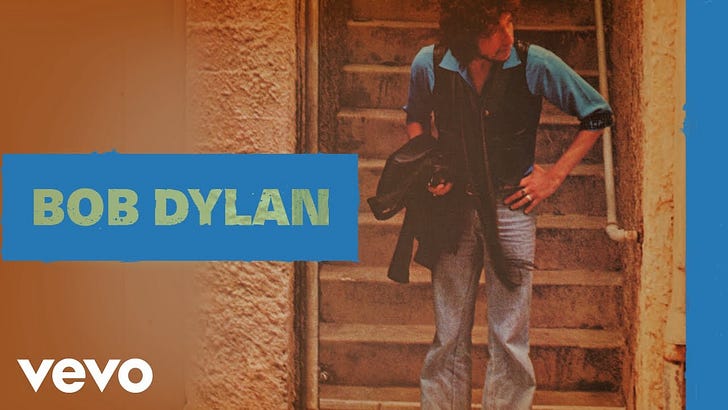I once had powerful dream about Street-Legal. That an alternate version, with just Bob Dylan's voice and acoustic guitar, and it was beautiful. When I woke up, I fired off a quick email to Dylan's office, and asked if such a thing existed, if there were alternate takes, as there have been for so much of his work, artfully presented and curated in the Sony Music "Bootleg" series.
I was told no. And there likely would not be, because of the way it was recorded: Which is live in the studio, essentially, with a large band, many singers, a lot of saxophone, a little trumpet, and no track-by-track overdubbing. It's alright ma, the microphone sound is bleeding so much that, I was told, you couldn't isolate just Dylan's voice and guitar.
Street-Legal (1978), occupies an interesting space in the Dylan catalog. It's almost no place. It was disliked at the time for its cluttered "pop-rock" sound, its hailstorm of background singers--Carolyn Dennis, Jo Ann Harris, and Helena Springs--shouting call …
Keep reading with a 7-day free trial
Subscribe to Critical Conditions by Wayne Robins to keep reading this post and get 7 days of free access to the full post archives.



